Business owners often face high tax bills that can eat into their profits. However, there are creative and strategic ways to reduce tax liabilities and keep more money in the business. This article explores innovative tax-saving strategies that can help business owners maximize their profits and minimize their tax burden.
Key Takeaways
- Consider hiring family members to take advantage of lower tax brackets.
- Utilize tax deductions available for home office and rental expenses.
- Choose the right business structure to optimize tax efficiency.
Creative Income Shifting Techniques

Hiring Family Members for Tax Benefits
Hiring family members can be a clever way to shift income and reduce your tax burden. When you hire your kids, for instance, you can pay them a salary that’s often taxed at a lower rate. Plus, you can deduct their wages as a business expense. Just make sure the work they do is legitimate and well-documented. This strategy can help you save big!
Utilizing Home Rental Deductions
If you rent out a part of your home, you might be able to deduct expenses related to that rental. This includes a portion of your mortgage interest, property taxes, and even repairs. Just keep track of everything! You can use a simple table to track your rental income and expenses:
| Expense Type | Amount |
|---|---|
| Mortgage Interest | $X |
| Property Taxes | $Y |
| Repairs | $Z |
| Total Deductions | $A |
Leveraging Lower Tax Brackets
If you can shift some of your income to a family member in a lower tax bracket, you can save on taxes. This is especially useful if you have kids or a spouse who can take on some of the income. Just remember, the IRS has rules about this, so keep it above board!
Exploring Corporate Tax Advantages
Setting up a corporation can provide various tax benefits. Corporations often have lower tax rates on profits compared to personal income tax rates. Plus, you can deduct many business expenses that you can’t as an individual. It’s a win-win if done right!
Remember, tax laws can be tricky, so it’s always a good idea to consult with a tax professional to ensure you’re making the most of these strategies.
By using these creative income shifting techniques, you can keep more of your hard-earned money in your pocket!
Smart Investment Strategies to Reduce Taxes
When it comes to keeping more of your hard-earned cash, smart investment strategies can be your best friend. Here’s how you can make your money work for you while reducing your tax bill.
Investing in Business Growth
Investing in your business is not just about expanding; it’s also a way to save on taxes. By reinvesting profits back into your business, you can often deduct those expenses, which lowers your taxable income. Think of it as a win-win: your business grows, and your tax bill shrinks!
Taking Advantage of Bonus Depreciation
Bonus depreciation is like a tax gift from Uncle Sam! This allows you to deduct a significant portion of the cost of qualifying assets in the year they are placed in service. For example, if you buy new equipment, you can write off a large chunk of that cost right away instead of spreading it out over several years. This can lead to substantial tax savings.
Maximizing Retirement Contributions
Don’t forget about your future! Contributing to retirement accounts like a 401(k) or an IRA not only helps you save for retirement but also reduces your taxable income. The more you contribute, the less you pay in taxes now. It’s like getting a two-for-one deal on your finances!
Utilizing Tax-Friendly Investments
Investing in tax-friendly options, such as municipal bonds, can help you keep more of your money. The interest earned on these bonds is often exempt from federal income tax, and sometimes state taxes too. This means more money in your pocket and less for the taxman.
Remember, the key to effective tax planning is to stay informed and proactive. The earlier you start, the more you can save!
By implementing these strategies, you can not only grow your business but also keep more of your profits in your pocket. So, roll up your sleeves and get to work on these smart investment strategies!
Optimizing Business Expenses for Maximum Deductions

When it comes to saving on taxes, you want to make sure you’re squeezing every last drop out of your business expenses. Maximizing your deductions is key! Here are some clever ways to do just that:
Tracking Every Receipt with Software
Keeping track of your expenses can feel like a full-time job, but it doesn’t have to be! Invest in some receipt tracking software that can help you organize and categorize your expenses. This way, you won’t miss out on any deductions come tax time. Plus, it saves you from the dreaded shoebox of receipts!
Prepaying Future Expenses
Why wait until next year to claim a deduction? If you know you’ll have expenses coming up, consider prepaying them before the year ends. This can include things like rent, subscriptions, or even office supplies. It’s like getting a head start on your tax savings!
Leveraging Home Office Deductions
If you work from home, you might be eligible for home office deductions. You can deduct a portion of your rent or mortgage, utilities, and even internet costs. Just make sure you keep good records of your business use to back it up!
Utilizing Section 179 Deduction
This is a game-changer for many business owners. Section 179 allows you to deduct the full purchase price of qualifying equipment and software purchased or financed during the tax year. So, if you’ve been eyeing that shiny new printer, now might be the time to snag it!
Remember, every little bit counts when it comes to deductions. Don’t leave money on the table!
By following these strategies, you can optimize your business expenses and maximize your tax deductions. Happy saving!
Choosing the Right Business Structure for Tax Efficiency
When it comes to structuring your business, the right choice can save you a ton of cash. You might be wondering, what is the right business structure for tax efficiency? Well, before deciding on your business structure, consider your growth plans, risk tolerance, and the potential need for legal protection or tax optimization.
Understanding Different Business Entities
There are several types of business structures you can choose from, each with its own tax implications:
- Sole Proprietorship: This is the simplest form. You report your business income on your personal tax return. Easy peasy, but you’re personally liable for any debts.
- Partnership: If you’re in business with someone else, this might be your jam. Profits and losses pass through to your personal tax returns, but you’re still on the hook for any debts.
- Limited Liability Company (LLC): This structure offers some legal protection and flexibility in how you’re taxed. You can choose to be taxed as a sole proprietorship, partnership, or even an S Corp.
- S Corporation: This is a popular choice for small businesses. It allows you to avoid self-employment taxes on a portion of your income, which can be a big win.
- C Corporation: This structure is more complex and can lead to double taxation, but it might be beneficial for larger businesses or those looking to reinvest profits.
Benefits of S Corporations
S Corporations can be a game changer for tax efficiency. Here’s why:
- Avoid self-employment taxes on distributions beyond your salary.
- Pass-through taxation means profits are taxed at your personal rate, not the corporate rate.
- Potential for tax deductions on health insurance premiums and retirement contributions.
Advantages of LLCs
LLCs offer a blend of flexibility and protection:
- Limited liability protects your personal assets.
- Tax flexibility allows you to choose how you want to be taxed.
- Less paperwork compared to corporations.
Navigating Double Taxation with C Corporations
C Corporations face double taxation, which means:
- The corporation pays taxes on its profits.
- Shareholders pay taxes on dividends received.
This structure might be worth it if you plan to reinvest profits back into the business or if you’re looking to attract investors.
Remember, choosing the right business structure is crucial for your tax strategy. It’s not just about saving money; it’s about setting a solid foundation for your business’s future.
In conclusion, take the time to evaluate your options and consult with a tax advisor to find the best fit for your business. Your wallet will thank you!
Wrapping It Up: Smart Tax Moves for Business Owners
So there you have it, folks! Tax season doesn’t have to feel like a trip to the dentist. With a little creativity and some savvy strategies, you can keep more of your hard-earned cash in your pocket. Whether it’s hiring your kids to shift some income, prepaying expenses, or even investing in your business, there are plenty of ways to save on taxes. Remember, it’s not just about how much you make, but how much you keep. So, roll up your sleeves, get organized, and don’t be afraid to consult a tax pro. After all, a penny saved is a penny earned, and who doesn’t want to earn a little more? Happy saving!
Frequently Asked Questions
What are some ways to reduce taxes for my business?
You can lower your taxes by hiring family members, taking advantage of deductions for home office use, and investing in your business.
How can I maximize my tax deductions?
To get the most deductions, keep track of all your expenses, prepay future expenses, and use software to manage receipts.
Is it better to have an LLC or an S Corporation for my business?
It depends on your situation. An LLC is simpler and good for small businesses, while an S Corporation can help save on self-employment taxes.







